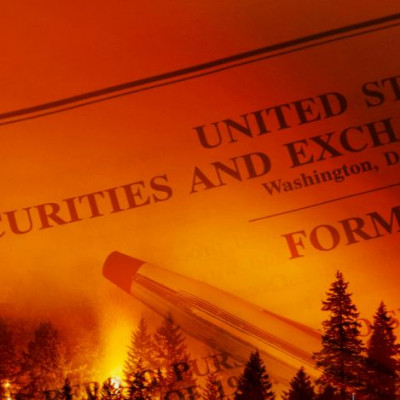January 31, 2022
January 2022 at Policy Integrity
- Congressional Testimony on Federal Oil and Gas Leasing
- Supreme Court Amicus Brief on Clean Power Regulation
- Estimating the Impacts of Climate Risk Disclosure
- A Ban on Hidden Fees May be Around the Corner
- Environmental Topics to Watch in 2022
- In the News: Time Running Out for Regulations; Cost of Carbon Lawsuit
- More from January 2022
-
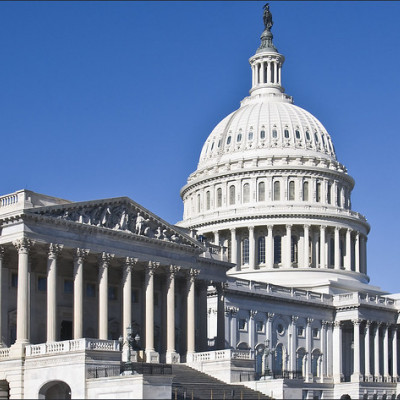
Congressional Testimony on Federal Oil and Gas Leasing
In a heated hearing on January 20, the House Natural Resources Committee examined the climate impacts of further oil and gas leasing in the Gulf of Mexico. Serving as a witness, Max Sarinsky explained that fossil fuel extraction on federal lands and waters clearly increases greenhouse gas emissions (despite industry claims to the contrary) and that these increases cause billions in annual climate damages. Sarinsky also noted the considerable value in delaying further leasing and proposed ways to improve the Department of Interior’s leasing program. The hearing video and Sarinsky’s full testimony are now available.
Lance Bowman and Iliana Paul dive further into how Interior can improve its flawed consideration of leasing’s climate impacts in a recent blog post.
-

Supreme Court Amicus Brief on Clean Power Regulation
On February 28, the Supreme Court will hear oral arguments for West Virginia v. Environmental Protection Agency, the latest round of litigation over the Trump Administration’s Affordable Clean Energy Rule and Repeal of the Clean Power Plan. Policy Integrity has (again) stepped in to defend the scope of EPA’s authority to regulate greenhouse gas emissions from the power sector. Our attorneys filed an amicus brief disputing petitioners’ claims about the applicability of the “major questions” doctrine (which could potentially prevent agencies from issuing any costly and controversial rule), EPA’s past use of flexible compliance mechanisms to regulate air pollution, and the essential role of Section 111(d) within the Clean Air Act’s comprehensive framework to reduce pollution. For more analysis from Richard Revesz on how the major questions doctrine might apply in West Virginia v. EPA, see this Bloomberg Law interview and this Inside EPA story.
-
Estimating the Impacts of Climate Risk Disclosure
Climate impacts are already threatening major economic sectors in novel ways and could cost the global economy trillions of dollars annually by 2100. Yet despite their serious implications, climate-related financial risks are under-disclosed by companies. As the Securities and Exchange Commission (SEC) prepares a new climate risk disclosure rule, our new report analyzes relevant case law and highlights best practices that the SEC can follow in estimating the rule’s economic impacts. With trade groups expected to challenge any new disclosure requirement by claiming that its costs exceed its benefits, defending the rule’s economic analysis will be crucial in court.
-
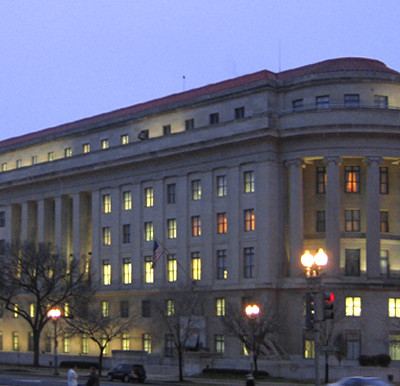
A Ban on Hidden Fees May be Around the Corner
Last summer, Policy Integrity filed a petition to the Federal Trade Commission (FTC) proposing a rulemaking to ban drip pricing, a deceptive marketing practice used to lure in consumers with artificially low prices, only to reveal hidden fees on the cusp of purchase. Under our proposal, FTC would require that all sellers disclose the full price of a product or service upfront. The Commission recently opened our petition to public comment and received supportive comments from consumer groups such as Consumer Reports and the National Consumers League and from industry representatives, including the National Association of Ticket Brokers and TicketNetwork. The diverse array of supporters may encourage FTC to prioritize this issue. To learn more about how FTC can do that, see petition author Max Sarinsky’s New York Times opinion piece published last year.
-
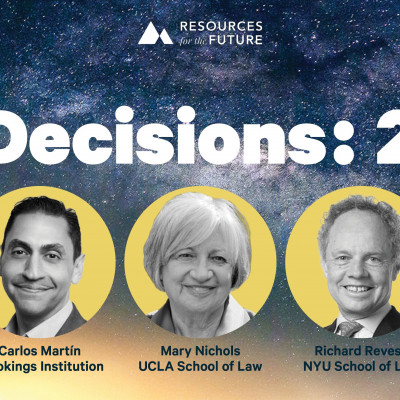
Environmental Topics to Watch in 2022
Richard Revesz recently took part in a Resources for the Future webinar on potential climate and energy developments in the coming year. Along with Revesz, Juliet Eilperin (Washington Post), Carlos Martín (Brookings Institution), Mary Nichols (UCLA School of Law), and Richard G. Newell (Resources for the Future) shared their insights on issues from the role of the courts in shaping climate policy to the next steps in the implementation of the Infrastructure Investment and Jobs Act (IIJA). Revesz spoke about the need for executive action to happen in parallel with legislation; the concerning role of the “major questions” doctrine in courts; and how the IIJA could improve transmission siting. The recording is available here.
-
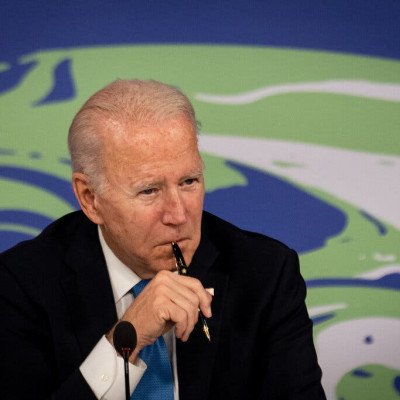
In the News: Time Running Out for Regulations; Cost of Carbon Lawsuit
The Biden administration’s window for lasting regulatory action could begin closing in 2022, since rules that aren’t finalized early in a presidential term can be more easily undone by a future administration. “If they haven’t moved by the end of [this] year, the administration will have missed a significant opportunity,” Richard Revesz told the New York Times.
The Biden administration’s effort to update the social cost of greenhouse gases is facing lawsuits by Attorneys General from Louisiana and Missouri. In this blog post, Max Sarinsky breaks down the challengers’ arguments to show that they mount an unprecedented and dangerous attack on science and bungle bedrock legal principles.
-
More from January 2022
We also submitted comments to:
- The Federal Acquisition Regulatory Council on climate-sensitive procurement.
- The Federal Transit Administration on ensuring electric vehicle equity. This blog post shares the key recommendations.
- The Federal Highway Administration on integrating equity considerations into its new funding programs for electric vehicle charging infrastructure.
- Occupational Safety and Health Administration (OSHA) on heat injury and illness prevention at work.
- DOE on its proposed energy efficiency standard for lightbulbs.
- EPA on oil and gas sector methane standards.
- FERC on its recent Mitigation Technical Conference.
- FERC on considering the climate impacts of the Wisconsin Access Project.
- OSHA on its authority to mandate that employers require Covid-19 vaccination and testing. For more on the issue, see this blog post by comment co-authors and NYU Law students Nina Henry and Alex Jonlin.

